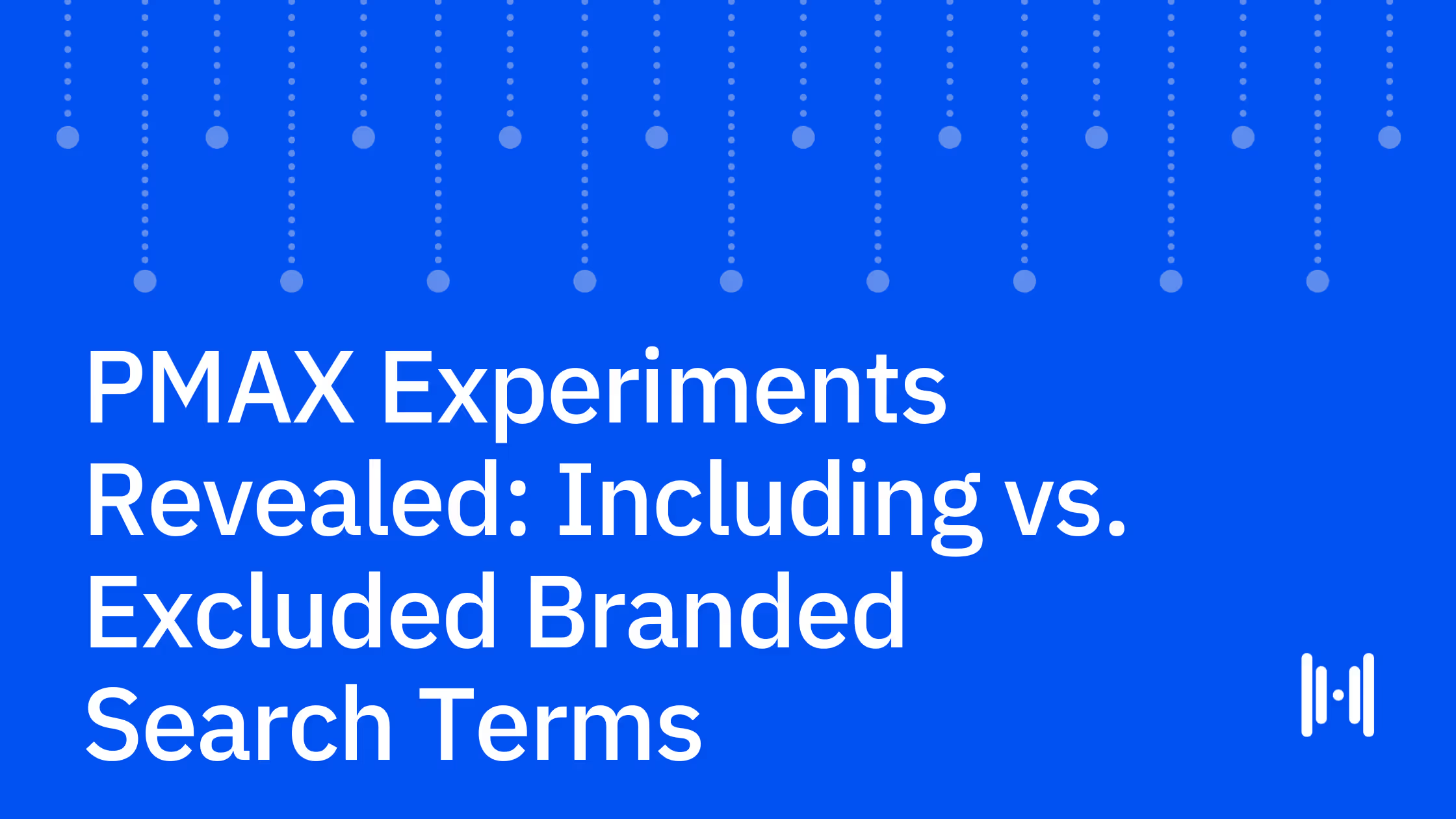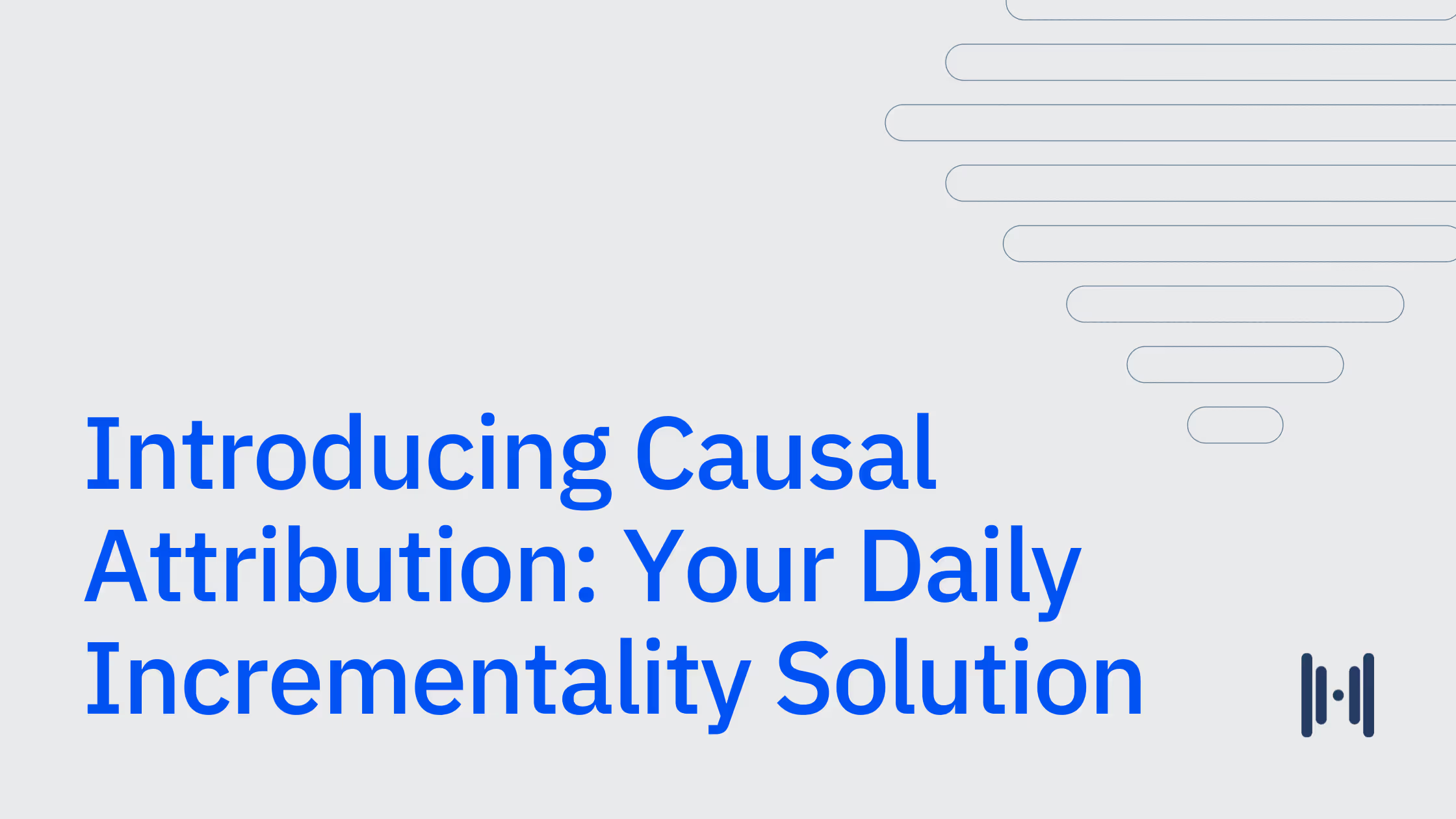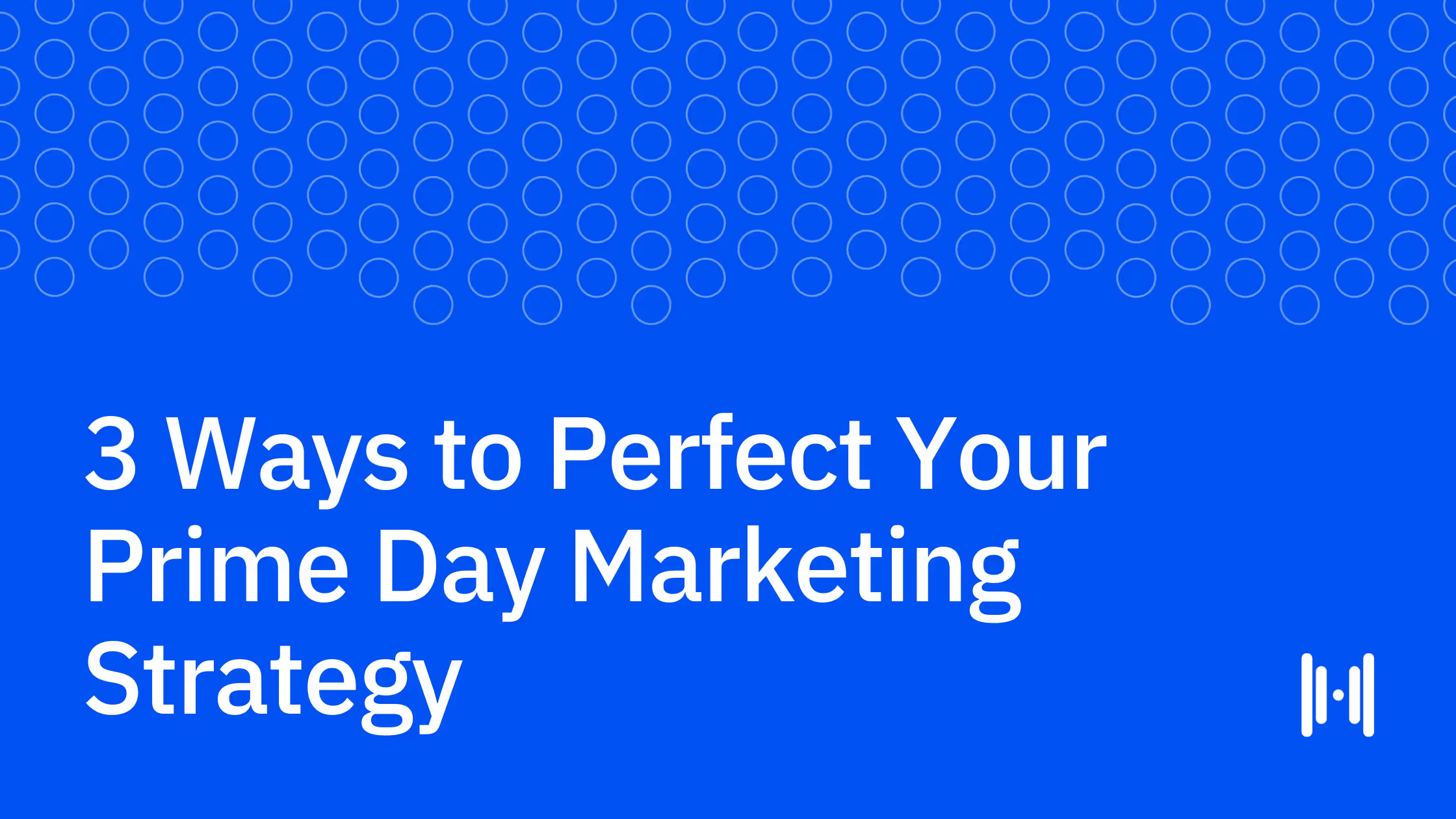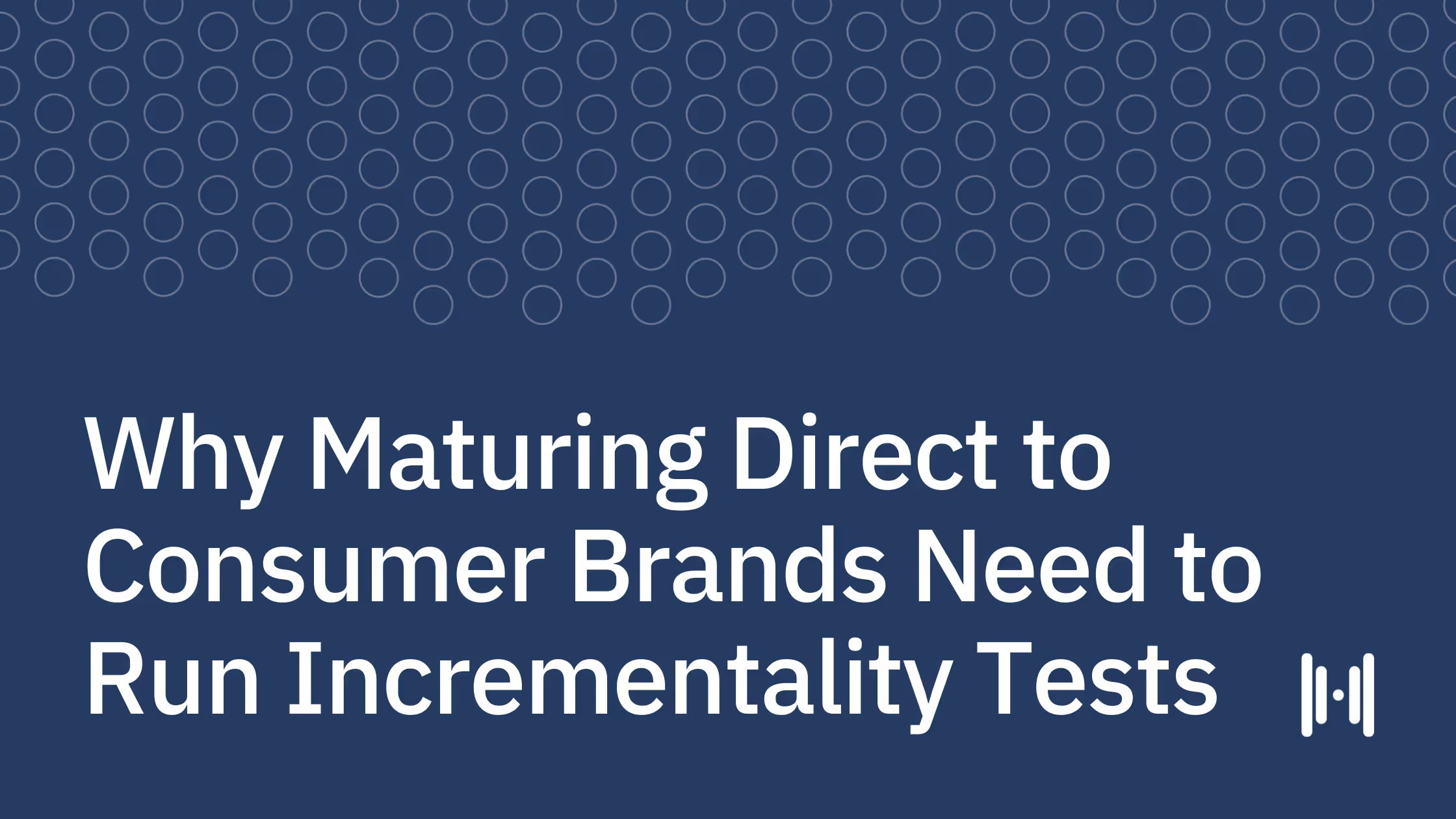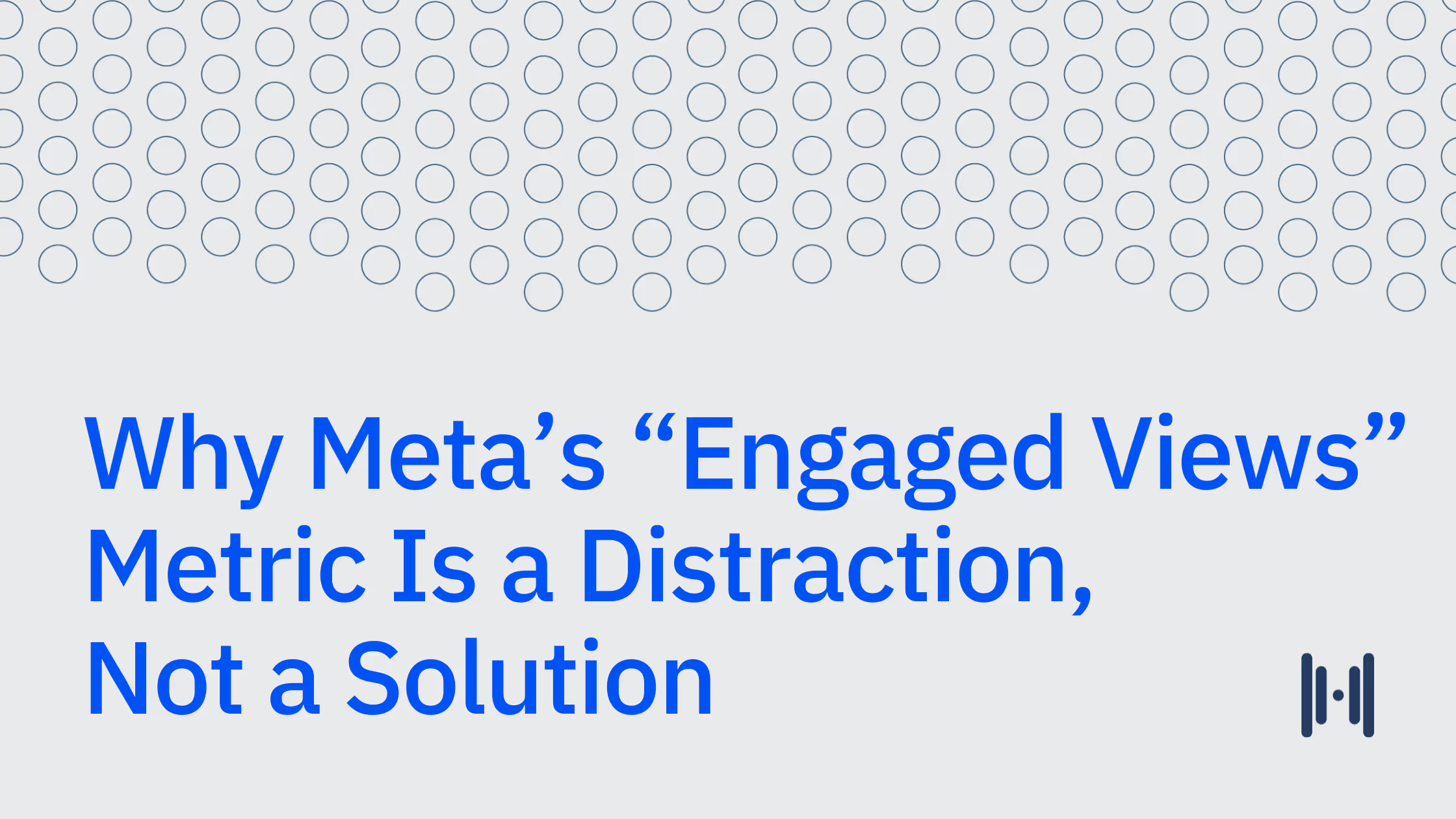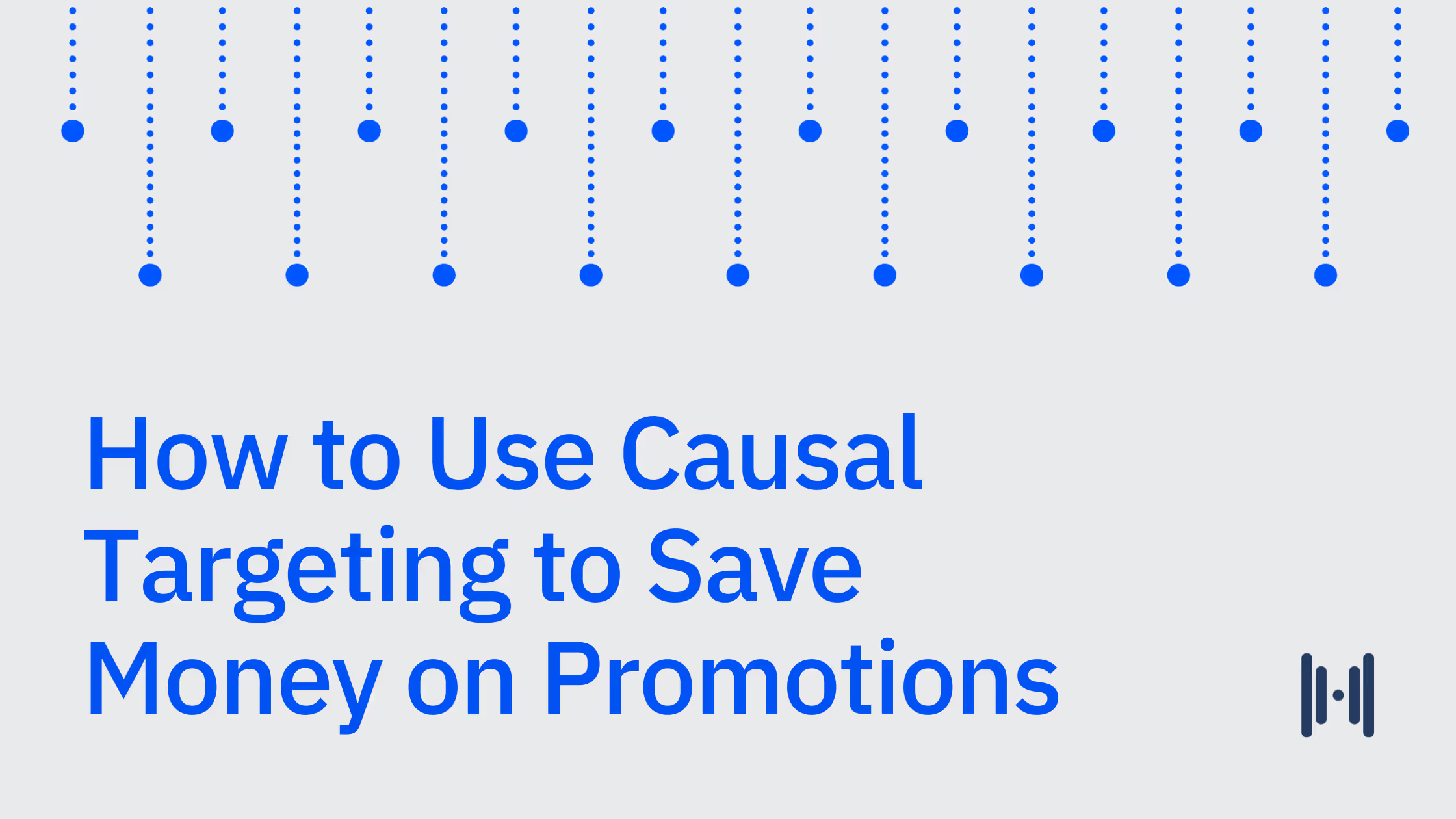Matched Market Tests Don't Cut It: Why Haus Uses Synthetic Control in Incrementality Experiments
Haus’ synthetic control produces results that are 4x more precise than those produced by matched market tests.
Chuan Goh, Economist and Applied Scientist | Mark Steinbach, Content Marketing Manager
•
Jan 28, 2025

The first rule of good incrementality test design: Make sure your control group is very similar to your treatment group. The more characteristically similar these groups are, the more precisely you can measure the impact of your marketing.
Unfortunately, this is where too many incrementality platforms cut corners. Instead of embracing the math to produce very similar testing groups, they wing it with a matched-market test (MMT). A good example of “matched markets” could be Detroit and Milwaukee. Both cities have comparable populations and sorta-similar income profiles. If “close enough” is the goal, MMTs will do. But acting on “close enough” data could lead to flawed strategy and inefficient ad spend.
That’s why experiment design needs to take a step further. Forget MMTs — a more exact regional match for Detroit might combine aspects of multiple untreated regions. Say, 70% of Milwaukee, 20% of Philadelphia, and 10% of St. Louis. (St. Milwaukadelphia? We’ll workshop it.)
This Frankenstein’s monster of metro areas is known as a “synthetic control group.” Instead of cherry-picking one similar region, a handful of markets make up your control group.
These kinds of synthetic controls with weighted averages drive more accurate experiments than matched market tests, but they can fall short in a few key ways. Sometimes, no matter how you mix and match their data, you can’t fully recreate what happened in the treated region. That means any results you get might be less reliable, because there’s not a close enough match.
Traditional synthetic control also assumes that the connections or similarities between different regions remain constant over time. In other words, if two areas move together today, this approach assumes they’ll always move together in the future. This is called a static relationship. But in real life, things can change—maybe one region starts behaving differently because of new trends, local events, or unexpected changes—which can make this a risky assumption.
To create counterfactuals that model the treated regions as closely as possible, Haus uses a layered model approach, powered by Causal Intelligence (cAI), for our synthetic controls. This delivers tighter confidence intervals by automatically selecting and combining the most relevant models, tailored to your unique business.
For every geo-test, Haus generates multiple models — each with different assumptions and structures. Before we use the models to analyze your business change, we want to check how well each one predicts data from a period before any changes occurred. We call this the “out-of-sample placebo period.” It’s a safe time frame we know wasn’t affected by your business change, so we can judge if a model is realistic.
After we see how well each model does during this placebo period, Haus uses AI to assign different weights to each candidate model. This means the models that do the best job of predicting the placebo period get more influence.
The result is a counterfactual that’s much more accurate and tailored for your specific business, helping you get clearer, more precise answers about the impact of your actions.
It’s easy to tell you that. But let’s run an experiment and show you how Haus’ synthetic control groups offer more precise incrementality testing than platforms using MMTs.
Putting synthetic controls and MMTs to the test
To show how Haus’ synthetic control methods outshine MMTs, we ran a simulation using actual revenues from a representative Haus customer’s geo-based holdout experiment.
First we pulled out a six-month pre-treatment period where the customer’s control group and treatment group hadn’t received the marketing intervention in question.
Next, we computed estimated MMTs using this six-month dataset. Sparing you the in-the-weeds data science, we generated a large dataset using one-to-one matching of similar DMAs. We calculated the variance in marketing lift estimates generated by this data set, which helped us assess just how much of a match these “matched markets” were.
Then we did the same thing using Haus’ proprietary synthetic control methodology using all 210 DMAs, analyzing multiple models to establish the most accurate counterfactual, and we calculated the variance in estimated marketing lift to determine how comparable these treatment groups and control groups were.
What did we find? Haus’ cAI synthetic control methods produced results that were 4X more precise than those produced by MMTs. In short, Haus creates synthetic markets that are more comparable — ensuring more precise insight into marketing performance.

4x precision matters in real-life media spend decisions
Imagine this: A brand runs a geo-based experiment to test the impact of YouTube ads on sales. The experiment delivers an incrementality lift of +5%, but how much confidence can they have in that result?
Scenario 1: Matched Market Test (low precision)
The confidence interval (range of possible true values) is -3% to +13%. The wide range makes it hard to determine if the campaign actually drove growth or if the results are just noise. How do they know for sure? Do they rerun the experiment multiple times? Do they take a swing in the dark? The team hesitates to scale the campaign because they lack confidence in its effectiveness.
Scenario 2: Haus cAI Synthetic Control (4x higher precision)
The confidence interval is much tighter: +3% to +7%. Now, the team can be confident that YouTube drove a positive lift. With this clarity, they reallocate budget, doubling down on YouTube and optimizing their strategy.
Why synthetic control groups are more precise
A city has lots of noise — literally and figuratively. Comparing regions one-to-one (a la MMTs) puts you at risk for outlier events in that control region. This introduces noise as you compare marketing outcomes to your treatment region. But when the treatment and control groups consist of multiple “spliced together” regions, more noise is averaged out.
Haus’ synthetic control method accounts for regional variation, which helps brands better understand how a nationwide marketing initiative might perform. For instance, comparing marketing outcomes in Detroit versus Milwaukee could help you predict how a campaign will do in Grand Rapids. But comparing Detroit to a combination of far-flung American cities run through multiple models helps you better predict how a nationwide rollout might perform.
Beyond synthetic control groups, Haus takes additional data-cleaning steps to soften noise, like accounting for other outliers and tracking seasonality trends.
"When you’re working with MMTs, an anomaly like a natural disaster or supply-chain issue mid-experiment would be catastrophic to your results,” says Tyler Horner, Haus Analytics Lead. “But with Haus, it's simply not something you have to worry about."
Wondering how a change in strategy is affecting your marketing’s ability to break through and drive conversions? Our bench of PhD causal inference experts builds the synthetic control groups that get you closer — offering a more representative picture of your marketing that you can quickly act on.
Sometimes all it takes is a team with a little extra muscle – and a genuine interest in solving hard problems thoughtfully.

.png)
.png)
.png)
.png)
.png)
.avif)
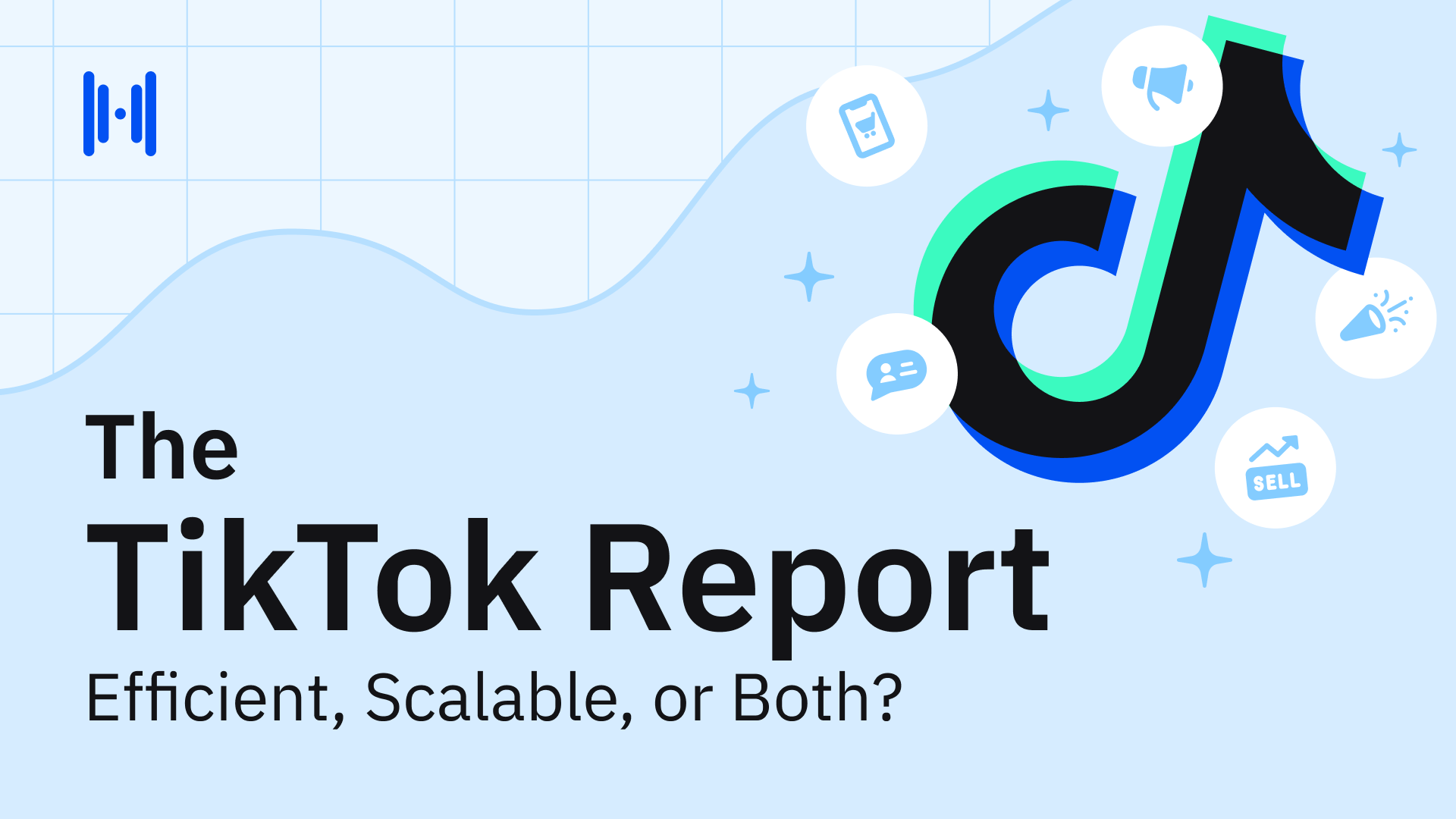

.png)
.png)
.png)
.png)
.png)
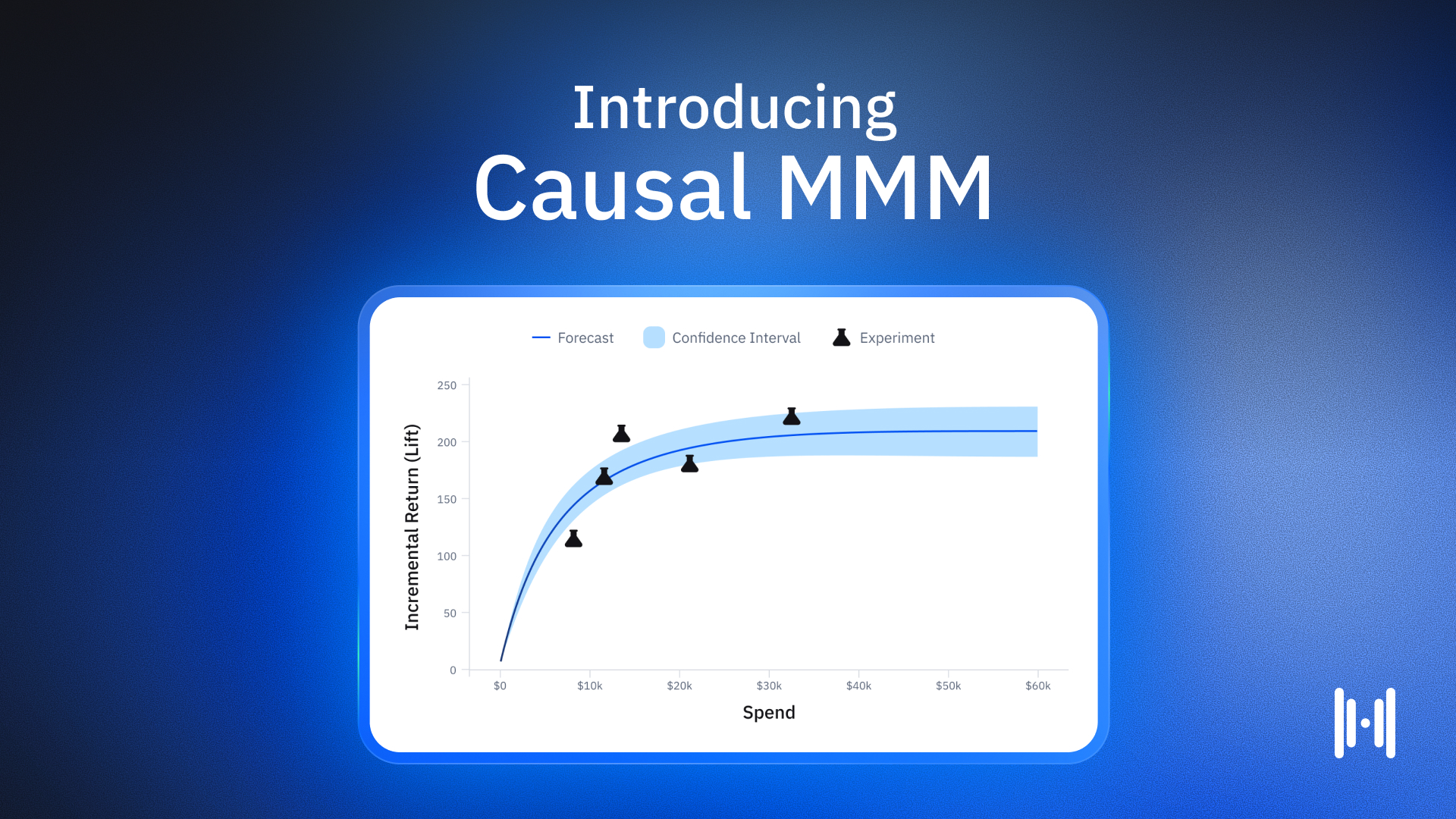
.avif)
.png)
.png)
.png)
.png)
.png)
.png)
.png)
.png)
.png)
.webp)
.webp)
.webp)
.webp)
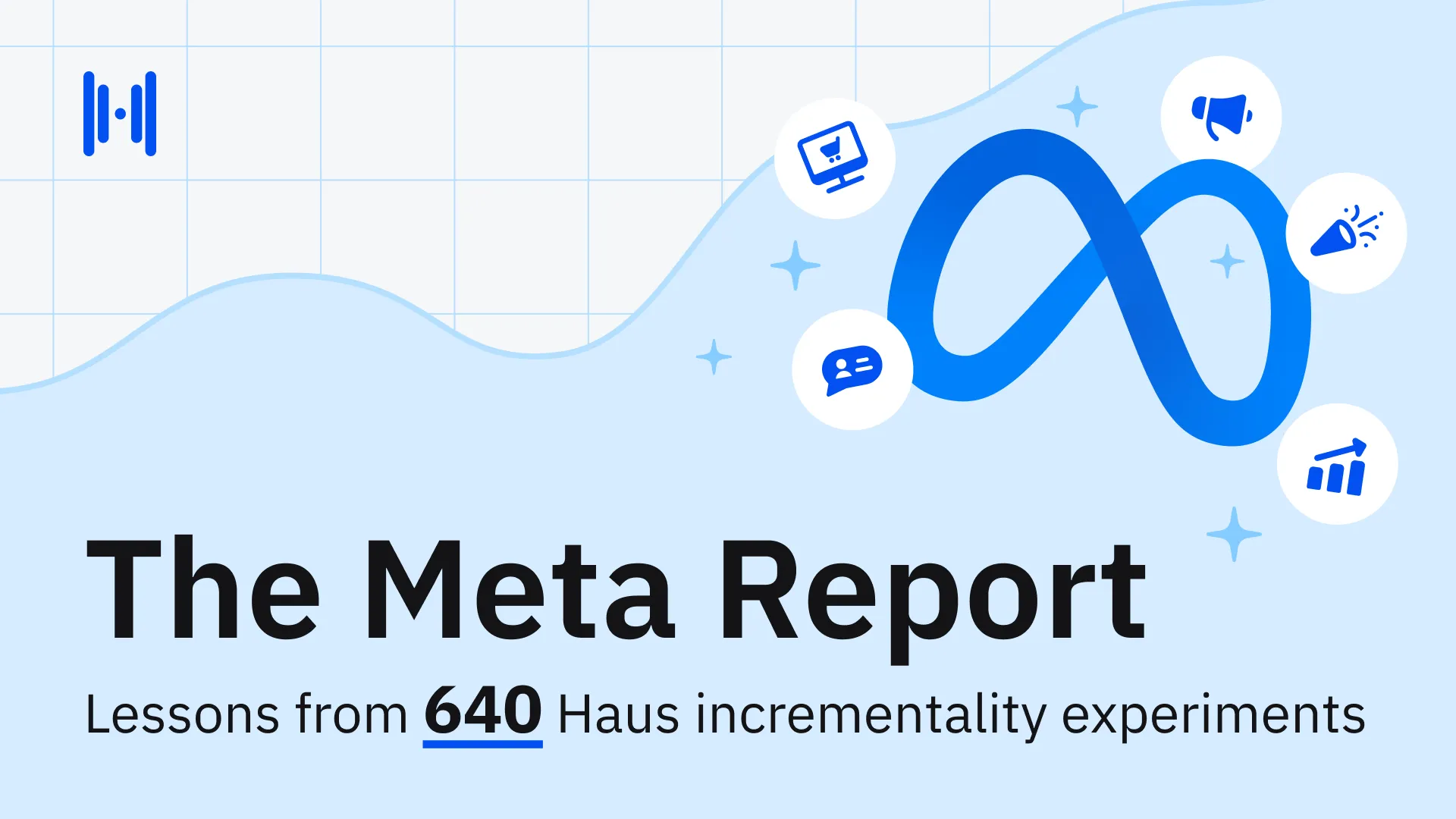
.webp)

.webp)
.webp)
.webp)
.webp)
.webp)
.webp)
.webp)
.webp)
.webp)
.webp)
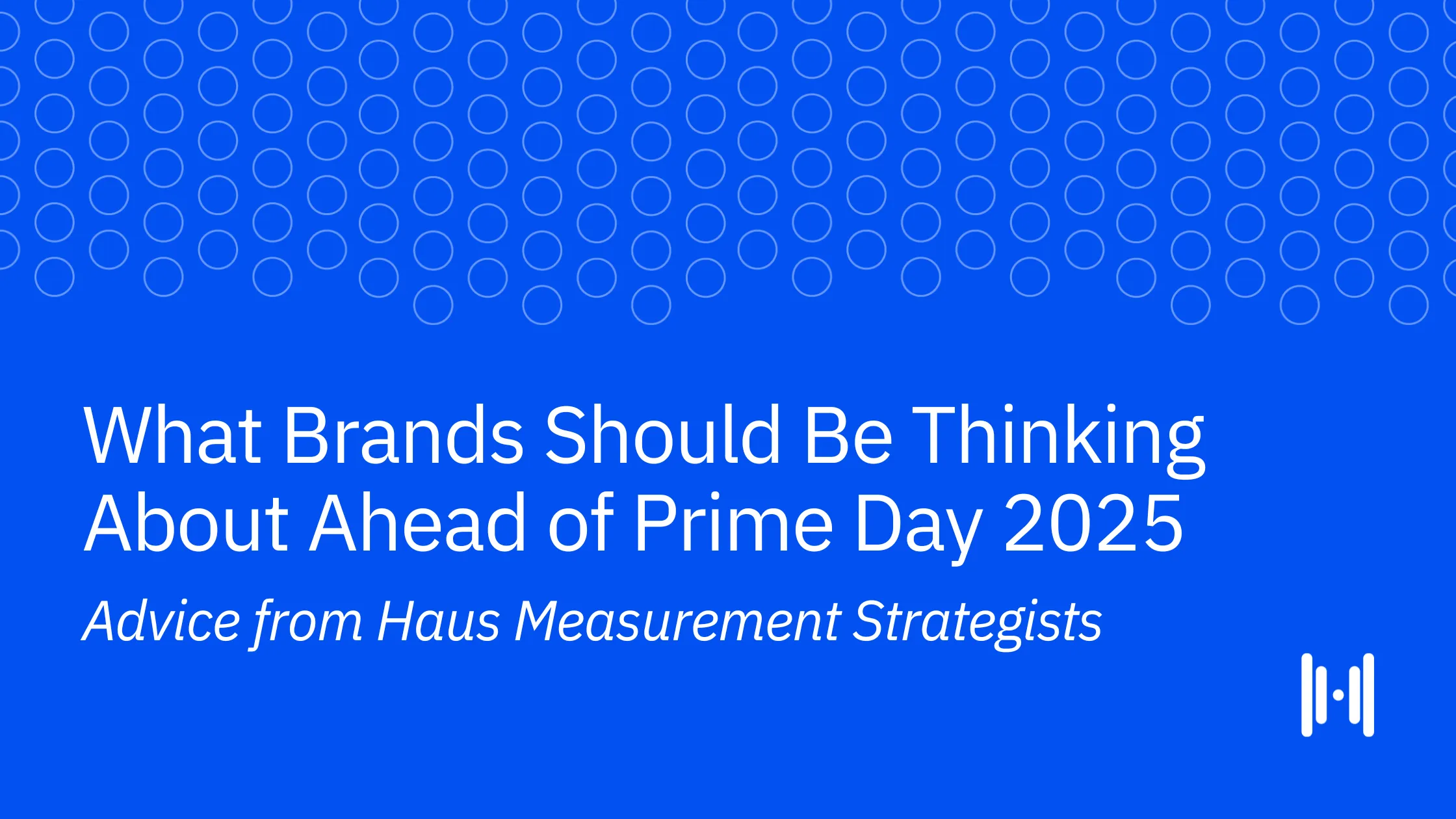
.webp)
.webp)
.webp)
.webp)
.webp)
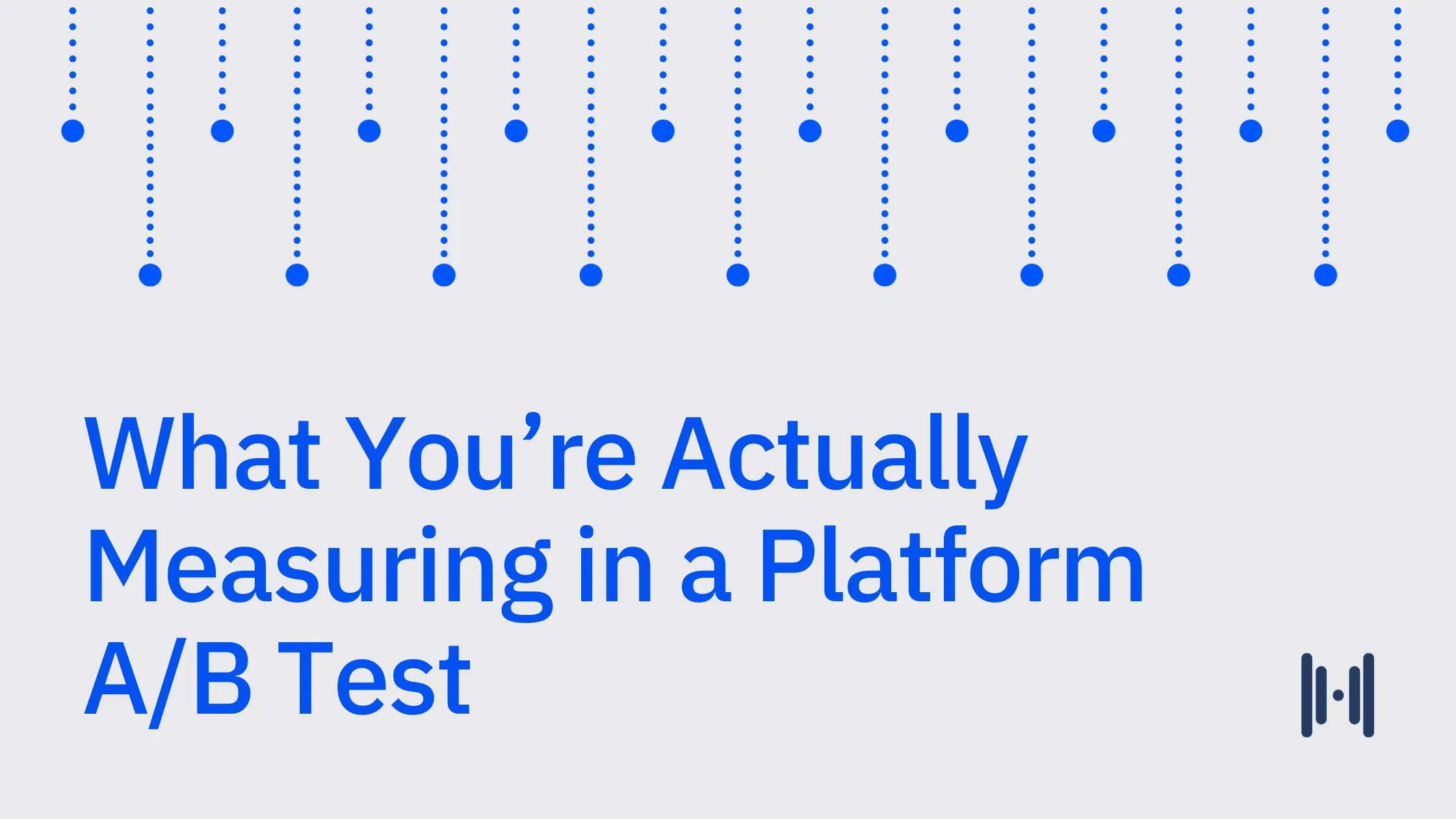
.webp)


.avif)
.avif)



.avif)
.avif)
.avif)

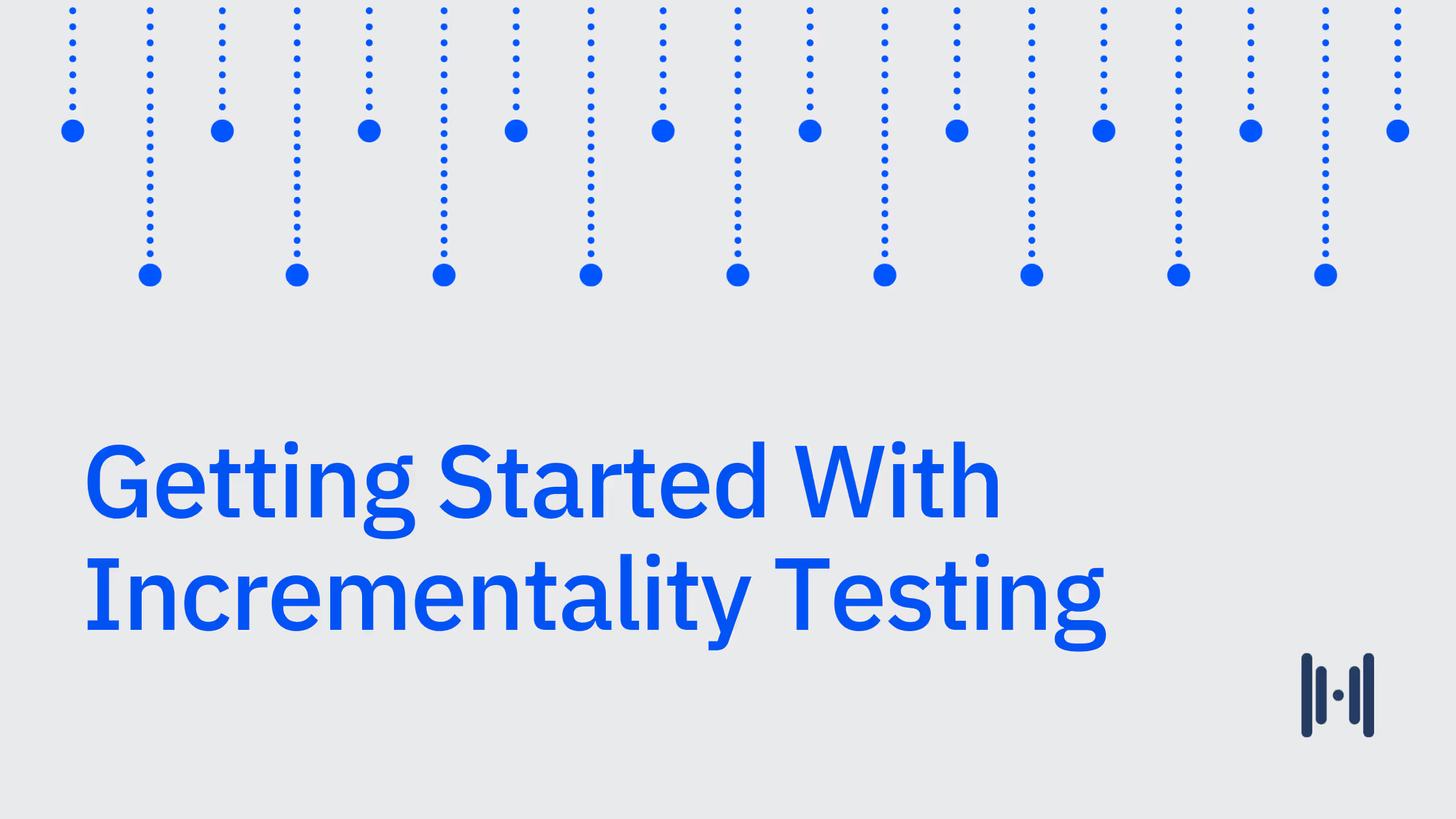
.avif)
.avif)
.avif)
.avif)
.avif)
.avif)




.png)
.avif)
.png)
.avif)
